President Mirziyoyev highlights key initiatives at SCO summit in Astana
On July 4, the President of Uzbekistan Shavkat Mirziyoyev addressed the SCO Council of Heads of Member States during a meeting held in Astana, Kazakhstan. The summit focused on strengthening regional security, economic cooperation, and sustainable development among member countries.
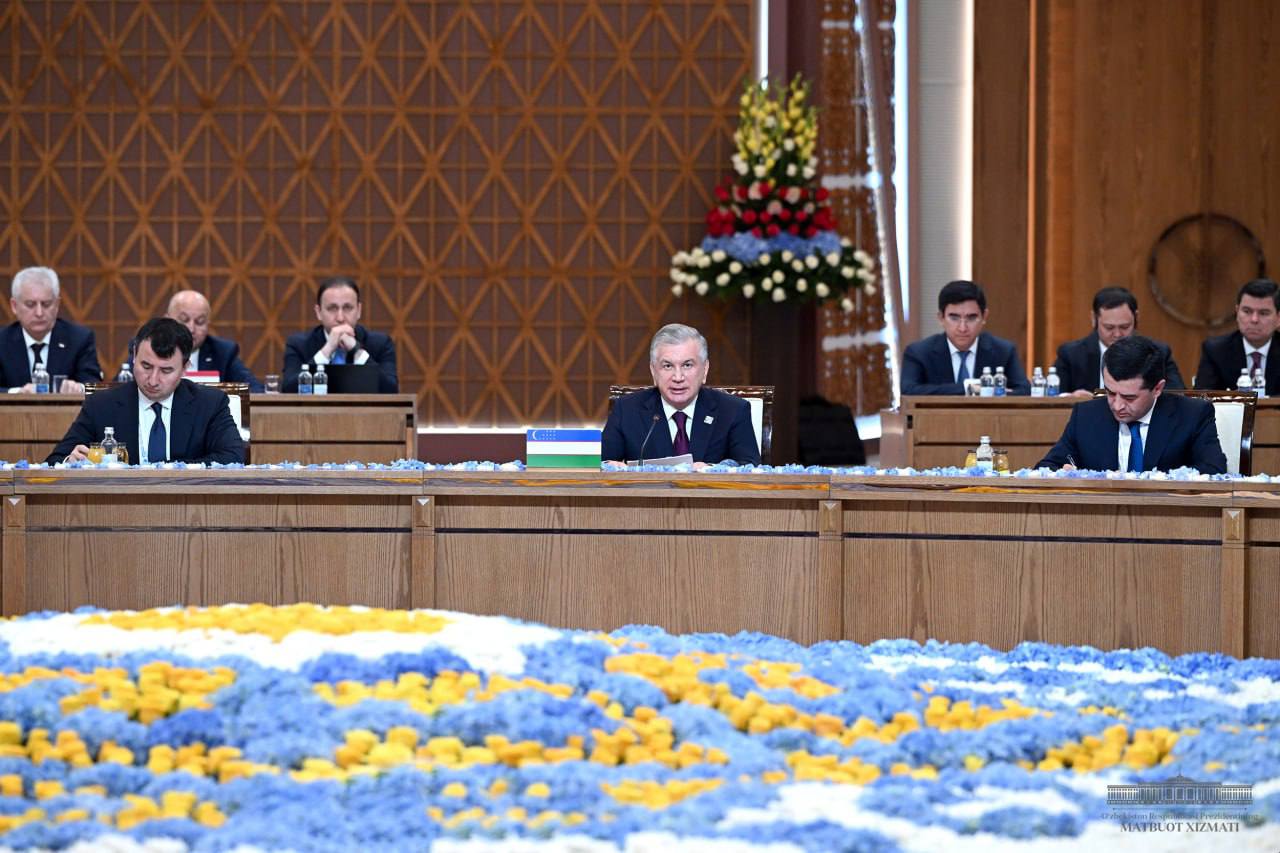
Photo: Presidential press service
President Mirziyoyev commenced his address by expressing gratitude to President Kassym-Jomart Tokayev of Kazakhstan for hosting the summit and welcomed the accession of Belarus to the SCO, congratulating President Alexander Lukashenko on this milestone.
Highlighting the escalating international tensions, President Mirziyoyev stressed the importance of adhering to the "Shanghai Spirit"—principles of mutual trust, mutual benefit, equality, respect for cultural diversity, and striving for joint development. He called for the unity of the SCO family to be maintained and further strengthened amidst increasing global and regional challenges.

Security and Economic Cooperation
President Mirziyoyev underscored the need for new approaches to ensure common security, referencing the Samarkand Solidarity Initiative for Common Security and Prosperity. He advocated for the adoption of the SCO Code of Good Neighborliness, Trust, and Cross-Border Partnership to enhance dialogue and cooperation.
On the economic front, President Mirziyoyev proposed the development of an Agreement on Trade Facilitation Procedures within the SCO. This would address trade barriers, harmonize technical regulations, and support the burgeoning cross-border e-commerce sector with a dedicated Cooperation Program.
Further, he emphasized the importance of industrial cooperation, suggesting comprehensive measures to stimulate mutual investments, especially in infrastructure and high-tech industries. He also revisited the idea of establishing the SCO Development Fund and the SCO Development Bank to support such projects.
Transportation, Energy, and Digital Transformation
President Mirziyoyev highlighted the critical need for an inclusive transportation system along the "East-West" and "North-South" lines. He proposed a Plan for the Digitalization of Logistics Procedures to streamline electronic data exchange on cross-border goods.
In the energy sector, President Mirziyoyev pointed to Uzbekistan’s initiatives in "green" energy, proposing a Comprehensive Cooperation Plan for Investments and Technology in Renewable Energy.
Recognizing the importance of digital transformation, he advocated for the "Future Technologies of the SCO" Program, focusing on the transition to a digital economy, the adoption of artificial intelligence, and the development of IT solutions to enhance competitiveness.
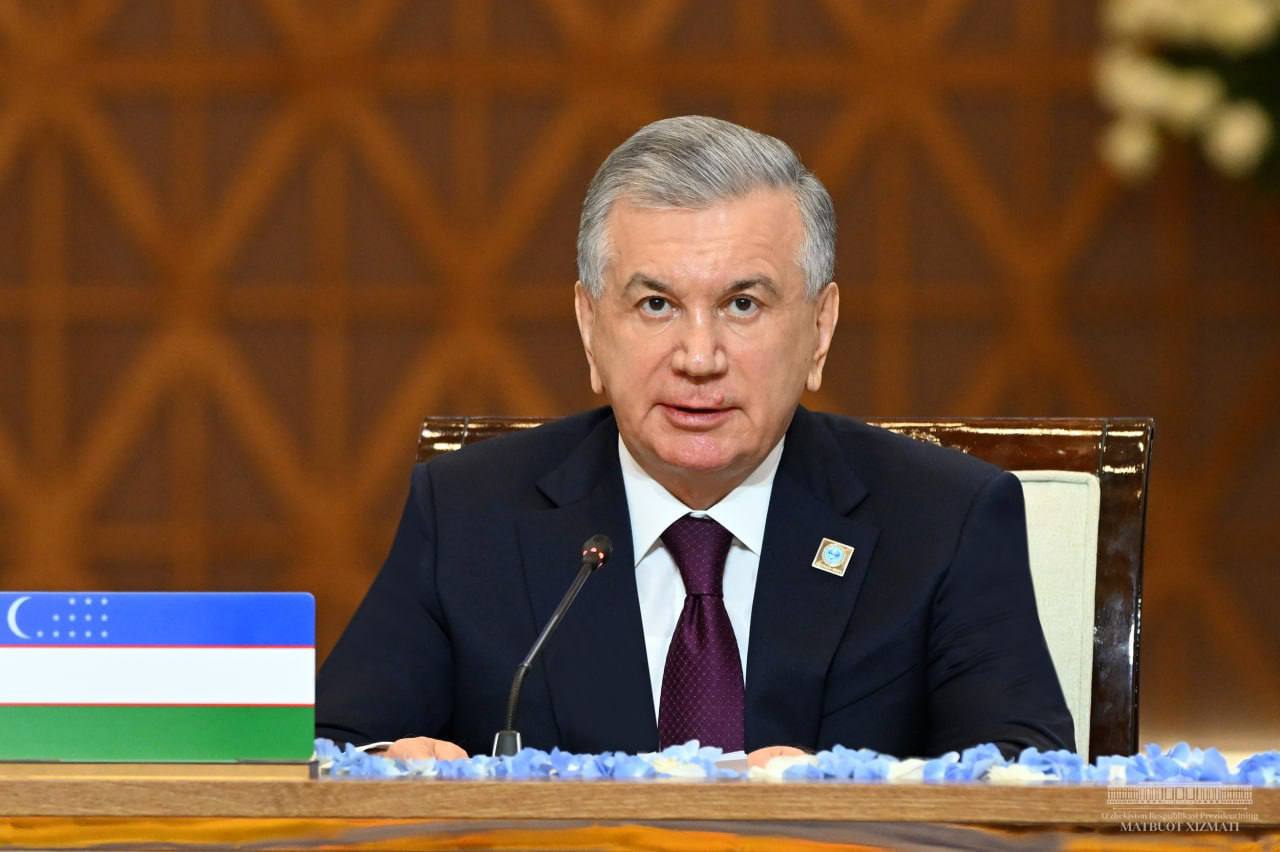
Social Development and Food Security
Shavkat Mirziyoyev proposed a ‘Roadmap’ for social development and protection among SCO countries, aimed at improving living standards and developing rural areas. He also suggested the creation of an electronic platform, the “SCO Food Security Atlas,” to consolidate data on agro-industrial potential and supply capabilities within member states.
Regional Stability and Afghanistan
Emphasizing the need for coordinated efforts to combat modern security threats, President Mirziyoyev addressed the situation in Afghanistan. He advocated for continued dialogue with Kabul, highlighting its importance for regional security and economic development. He also called for the resumption of the SCO-Afghanistan Contact Group’s activities.
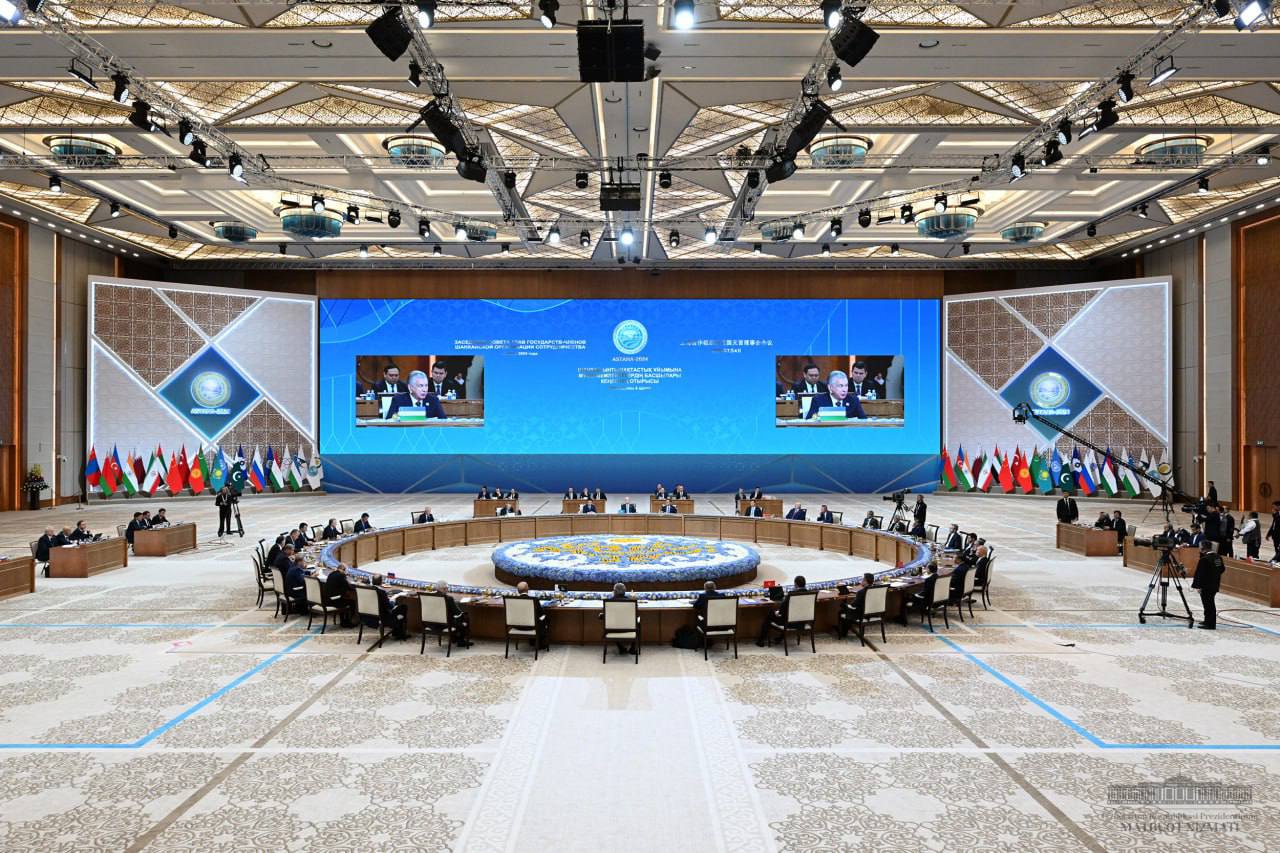
Commitment to SCO's Future
Concluding his address, President Mirziyoyev marked the 20th anniversary of the SCO’s permanent bodies and reiterated Uzbekistan’s commitment to the organization’s development. He congratulated President Xi Jinping of China on assuming the SCO chairmanship and affirmed Uzbekistan’s dedication to expanding multifaceted partnerships within the SCO.
The summit served as a platform for reinforcing the SCO's role in regional stability and cooperation, with Uzbekistan’s initiatives reflecting a forward-looking approach to the challenges and opportunities facing the member states.
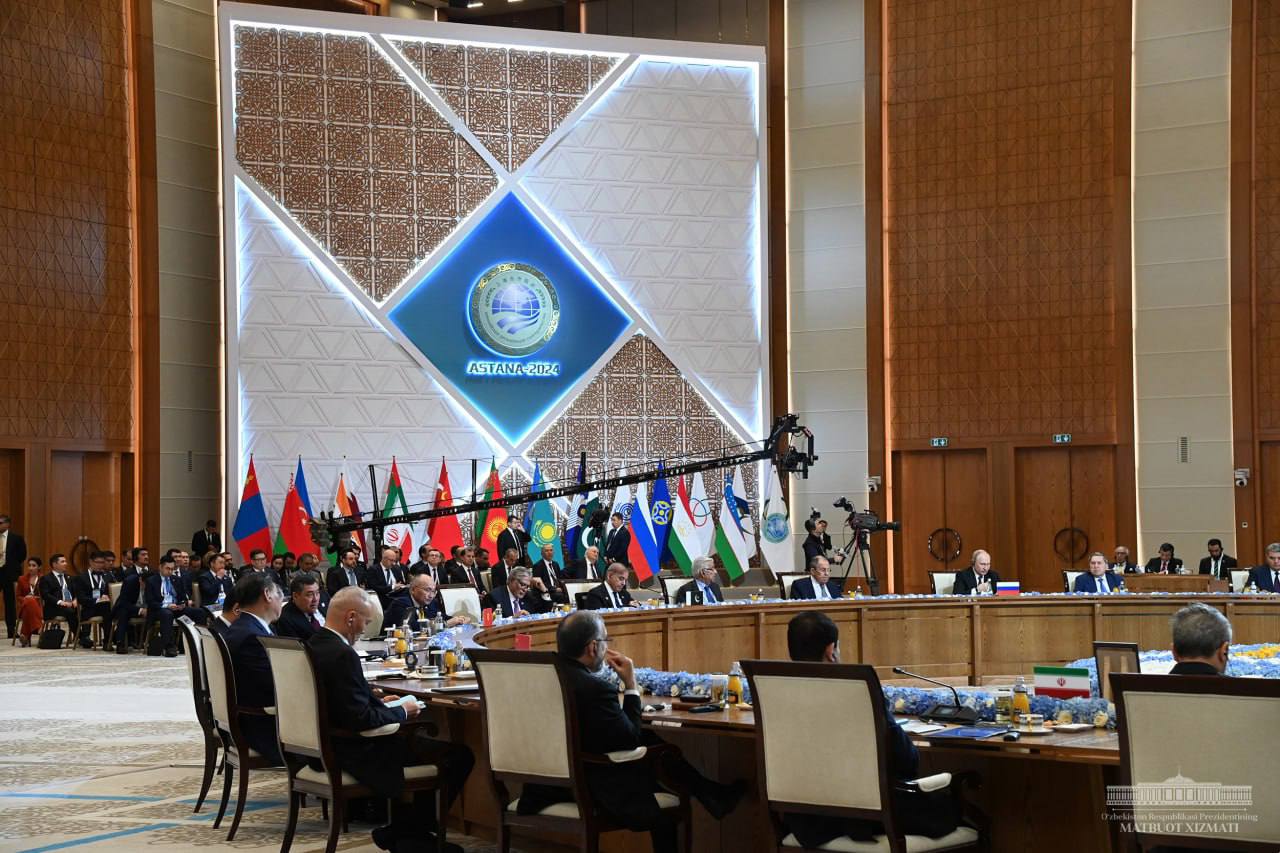
Related News

14:13 / 22.01.2026
Kazakhstan weighs social media ban for children under 16
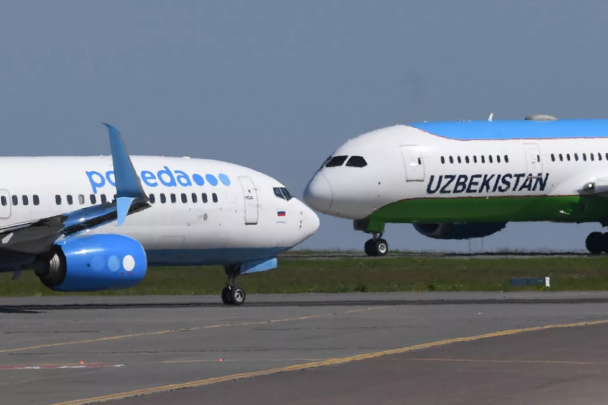
13:25 / 14.01.2026
Kazakhstan investigates near midair incident involving Uzbek and Russian planes
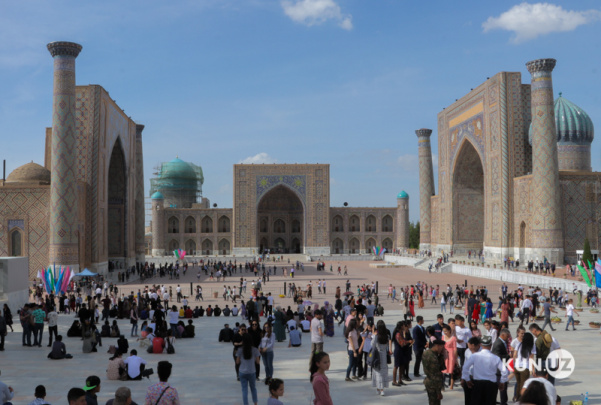
13:26 / 25.12.2025
Kyrgyzstan, Kazakhstan, Tajikistan lead tourist inflows to Uzbekistan
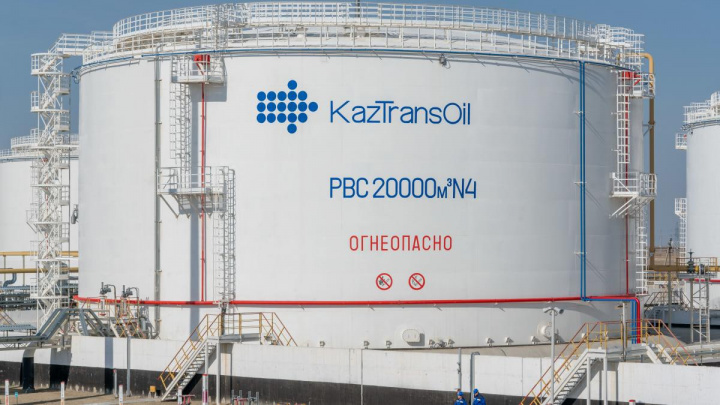
14:50 / 16.12.2025




